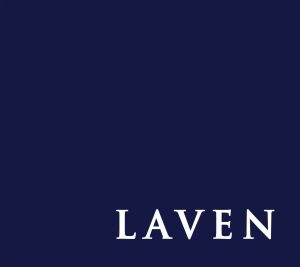Deciding whether to apply for FCA authorisation or whether instead to become hosted by a principal firm as an appointed representative (‘AR’) is one of the most important decisions a firm can make because it will ultimately decide how the firm goes about its business and the responsibilities it will have to those it interacts with for the first few years of the firm’s life. In this article we examine some of the differences between direct FCA authorisation and being hosted that firms may wish to consider.
How long does it take to become authorised?
There is a big difference in the process of becoming authorised directly compared with being hosted. Seeking direct authorisation is an intensive process, not least in regard to the time it takes. It is not uncommon for a direct FCA authorisation to take almost a year (if not more) to achieve. Despite the statutory deadlines set by regulators, many firms hope to have their applications treated as ‘complete’ from the moment secure receipt is acknowledged. This is not often the case as perfect applications are not the norm. Questions are bound to be asked as the case officer aims to understand a firm’s business plans. It is only once the application is deemed “complete” that the clock truly starts ticking.
During this drawn-out process you will not be able to engage in regulated activity, and depending on the reliance your business plan has on conducting such regulated work it may end up costing you the opportunity to start generating income. Waiting another year to begin business activities in a changing financial landscape can also introduce an additional source of uncertainty, particularly if your business plan relies on present market performance. On the contrary, gaining regulation through being hosted by a principal is a relatively fast process, usually taking no more than a few weeks (4-6) from submission to confirmation.
What are the different onboarding requirements?
A core onboarding difference between being hosted and directly authorised is the application process. Whilst the same principles apply to both firms and compliance to FCA requirements is applicable in each scenario, it tends to be simpler to join an existing principal firm.
Hosting platforms and existing principal firms can offer an established compliance infrastructure. This means that the regulator relies on the principal to ensure the onboarding and monitoring is conducted in line with the regulator’s expectations. This places a lot more obligations on the principal to conduct its appropriate checks and due diligence, and to guide the appointed representative as to the
Of perhaps greater importance to some firms, particular those in a start-up stage, are different capital adequacy requirements. Unlike when a firm applies to be directly authorised, the level of capital and liquidity needed to by onboarded by a principal is determined by the principal based upon their assessment of risks and business plan of the firm being onboarded. For smaller firms especially, reaching the regulatory requirements for authorisation can be a difficult task making hosting much more attractive.
What are the benefits of regulatory hosting?
When you are hosted by a principal such as Laven Advisors, you have the ability to use the resources and policies of the principal and can help streamline the reporting process. The principal firm will usually have developed an efficient reporting process drawing upon its specialist knowledge and experience that will meet its regulatory requirements. Dealing directly with a principal firm can at times be simpler for the AR to understand its regulatory requirements due to the accessibility the AR has to the principal’s compliance infrastructure. On an ongoing basis, the principal should answer any questions about its AR’s related activities so as to ensure that all those who engage in regulated activities are provided with appropriate compliance guidance, training and communications of the latest changes to regulation.
Which approach will provide more flexibility?
When a firm is hosted the principal firm extends its permissions to its appointed representative (the hosted firm). The permissions and expertise of the principal firm must align with the intended regulatory business plan the AR intends to engage in.
An established compliance infrastructure requires for the AR to comply with its principal’s policies and procedures. Some firms may find a preference to operate without having to rely on a principal firm, giving the firm more control over the systems and controls. This may at times include differences in risk appetites. It is therefore very important to ensure there is a meeting of minds during the preliminary due diligence process as the principal firm must be comfortable with its AR’s business plan. The proximity to the principal firm permits the appointed representative and hosted clients to benefit from having a direct line of compliance support which it would not have if they were directly authorised.
The responsibilities a firm must face when gaining direct authorisation are significant which can at times serve as a distraction from the main business of the firm. There is a heavy weight placed on individuals performing their appropriate responsibilities with rules such as the Senior Managers and Certifications Regime which calls for the appropriate level of knowledge and expertise to be held by each senior manager. The preparation to launch an authorised firm is therefore significant – from non-financial resources to financial resources, a firm must ensure to have all angles covered prior to considering an application to be submitted.
As part of the ongoing compliance monitoring, the principal firm will conduct regular risk-assessments and monitoring reviews with the appointed representative or hosted client. The principal must also allocate sufficient time and the appropriate non-financial resources (i.e., expertise) in order to conduct such monitoring. This translates to the principal having the ability to build a strong understanding of the appointed representative or hosted client and consequently allow the principal firm to offer amore tailored approach to the hosted firm and its monitoring.
Whilst it may seem that becoming directly authorised might let your firm cast a wider creative net, principal firms must apply a risk-based approach to its monitoring, making a hosting solution more proportionate to your activities.
How are responsibilities different when hosted vs being directly authorised?
A firm that is directly regulated by the FCA is responsible for its own compliance. Firms need to learn how to meet the FCA’s reporting requirements which can be particularly challenging in light of new requirements. Directly authorised firms are required to stay up to date with the latest changes, which will usually require an in-depth knowledge of compliance. When becoming directly authorised, a firm must also appoint an independent compliance officer (CO) or money laundering reporting officer (MLRO) of their own. An appointed representative relies on the MLRO and CO of its principal firm. This highlights the regulatory underwriting the principal firm takes as it becomes ultimately responsible to the FCA for ensuring its appointed representatives and hosted clients remain compliant.
When a firm is hosted, it is the principal’s responsibility to update and report to the FCA directly. Late submissions can result in fines to the principal firm. It is also the principal firm that must correspond about its appointed representatives to the regulator.
As a result, it can often be less daunting for firms to be hosted rather than take on direct responsibilities to the regulator.
Conclusion:
Overall, there are many important differences between being hosted and seeking direct authorisation. Which is right for your firm will depend upon your activities, your size, your firm’s structure, your team’s experience (including with compliance), the finances you have available and the aversion you have to risk. It is also possible that in some case either direction might work, however here at Laven we a big believers in the hosting system and benefits it can bring.





